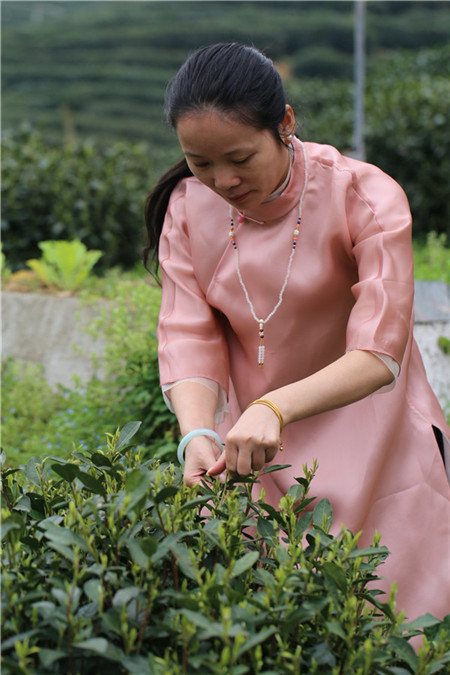 |
|
Picking Longjing tea at Meijiawu in Hangzhou. [Photo provided to China Daily] |
Some frequent Chinese tea drinkers like to refer to Longjing (Dragon Well) as the "gentleman" of Chinese teas. The tea produced in middle Zhejiang is known for a green and slightly yellow color, rich orchid and chestnut aroma, as well as a sweet aftertaste and a neat appearance.
The appellation also probably comes because the tea has a long history. On almost every authoritative top 10 famous Chinese teas listings, Longjing rises to the top. In 2008, the roasting production technique of West Lake Longjing tea was listed as a Chinese national-level intangible cultural heritage. A mouthful of the tea is comforting to both the taste buds and body.
A tea with such high status has legends and tales around it worthy of a TV series. Firstly, there really is a "dragon well", a small pool of spring water located at the northwest foot of Wengjia Mountain to the west of West Lake in Hangzhou. According to a local legend, which is, of course, unconfirmed, the pool is believed to have a dragon in it. And the said dragon can access the sea through, presto, a subterranean channel. That's also where the Dragon Well village and the Dragon Well temple are situated.
The history of tea making in the West Lake area dates back to the Tang Dynasty (618-907). That dates the written history of tea in the area to more than 1,500 years. By the Ming Dynasty (1368-1644), Longjing was listed among the top Chinese teas. It reached the top of the list during the Qing Dynasty (1644-1911), especially because of recognition from Emperor Qianlong.
Partly because of the area's early prosperity, Qianlong visited the region six times in his reign of 61 years, and is said to have watched tea making on four visits. He wrote poems about tea making and tea drinking, and designated 18 tea shrubs in front of Hugong Temple as "imperial tea". Longjing then became a tribute to emperors. It has also been given to foreign leaders as a state gift.